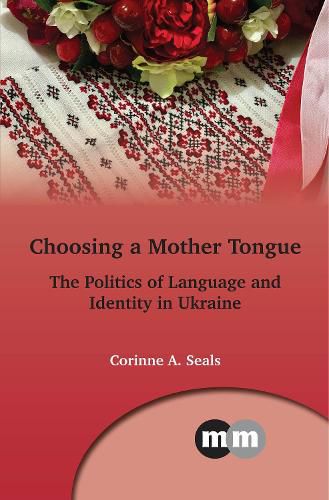Readings Newsletter
Become a Readings Member to make your shopping experience even easier.
Sign in or sign up for free!
You’re not far away from qualifying for FREE standard shipping within Australia
You’ve qualified for FREE standard shipping within Australia
The cart is loading…






This book presents a sociocultural linguistic analysis of discourses of conflict, as well as an examination of how linguistic identity is embodied, negotiated and realized during a time of war. It provides new insights regarding multilingualism among Ukrainians in Ukraine and in the diaspora of New Zealand, the US and Canada, and sheds light on the impact of the Russian-Ukrainian war on language attitudes among Ukrainians around the world. Crucially, it features an analysis of a new movement in Ukraine that developed during the course of the war - ‘changing your mother tongue’, which embodies what it is to renegotiate linguistic identity. It will be of value to researchers, faculty, and students in the areas of linguistics, Slavic studies, history, politics, anthropology, sociology and international affairs, as well as those interested in Ukrainian affairs more generally.
$9.00 standard shipping within Australia
FREE standard shipping within Australia for orders over $100.00
Express & International shipping calculated at checkout
This book presents a sociocultural linguistic analysis of discourses of conflict, as well as an examination of how linguistic identity is embodied, negotiated and realized during a time of war. It provides new insights regarding multilingualism among Ukrainians in Ukraine and in the diaspora of New Zealand, the US and Canada, and sheds light on the impact of the Russian-Ukrainian war on language attitudes among Ukrainians around the world. Crucially, it features an analysis of a new movement in Ukraine that developed during the course of the war - ‘changing your mother tongue’, which embodies what it is to renegotiate linguistic identity. It will be of value to researchers, faculty, and students in the areas of linguistics, Slavic studies, history, politics, anthropology, sociology and international affairs, as well as those interested in Ukrainian affairs more generally.